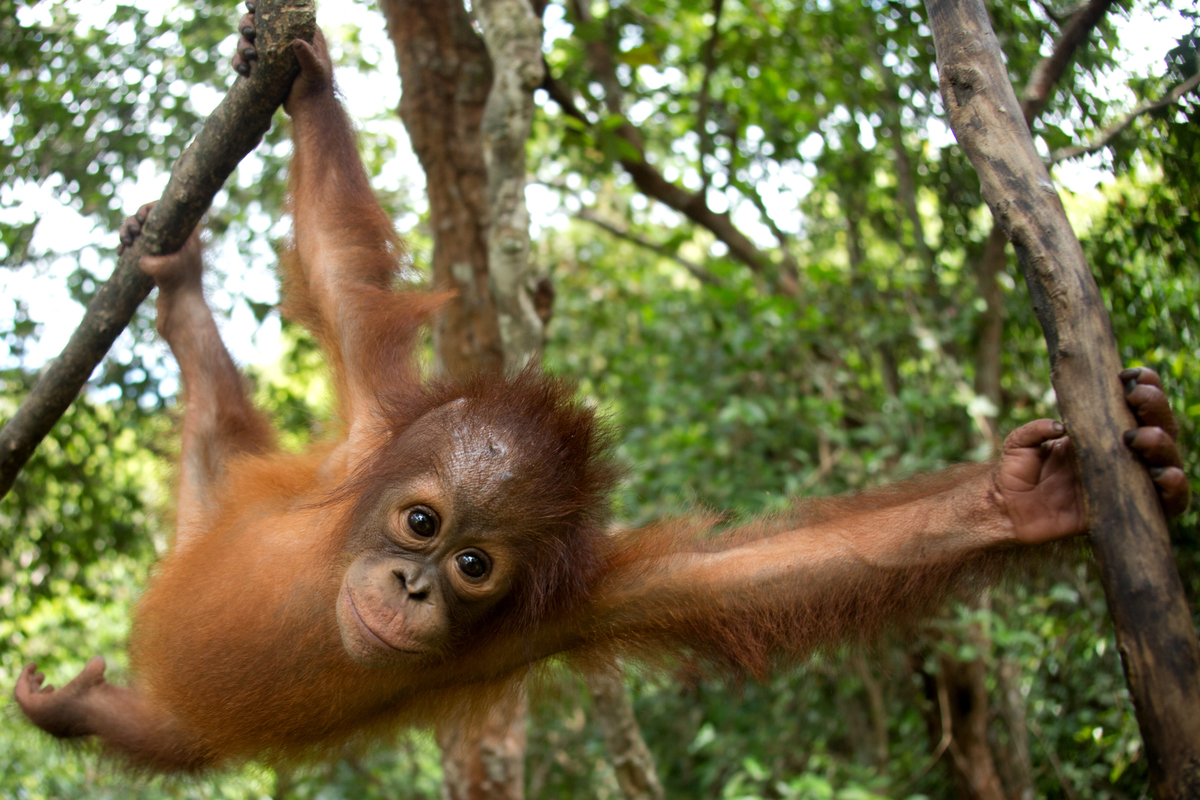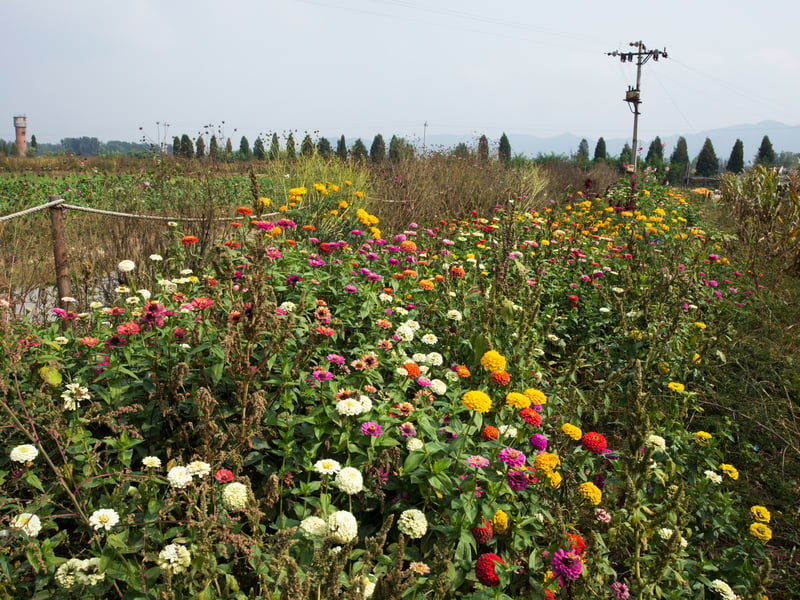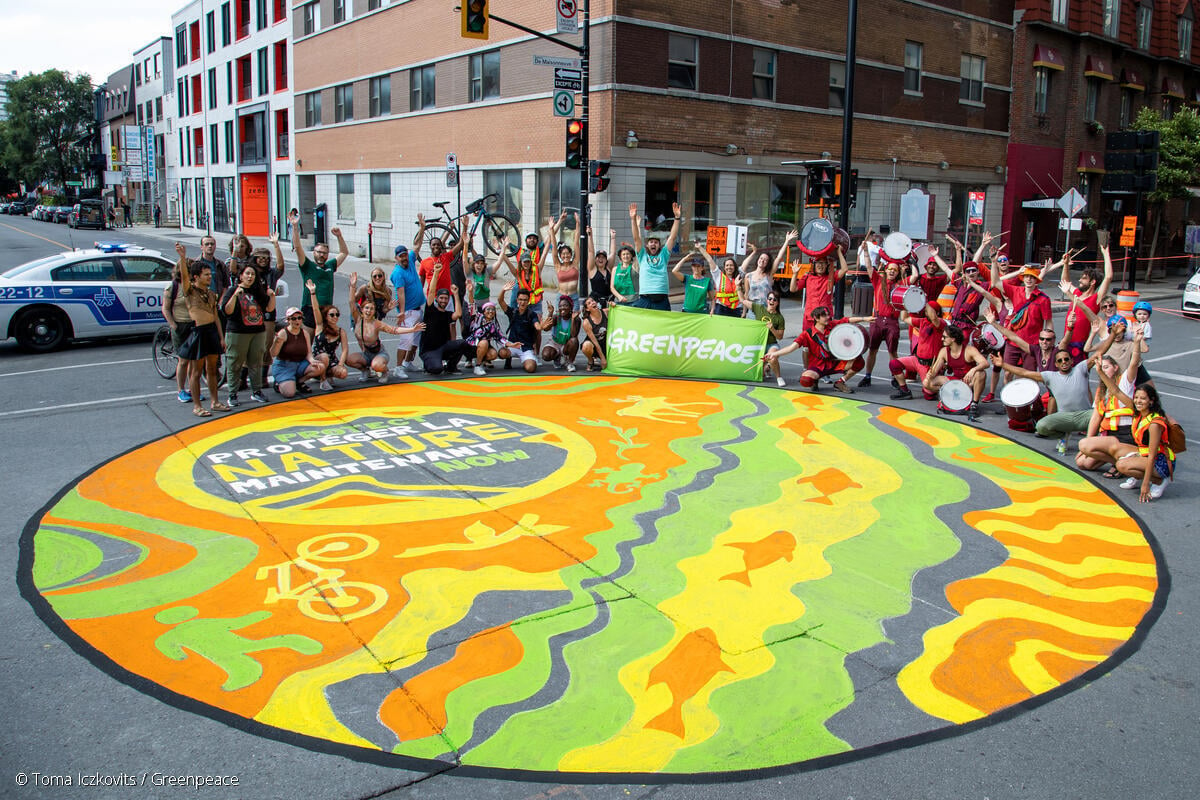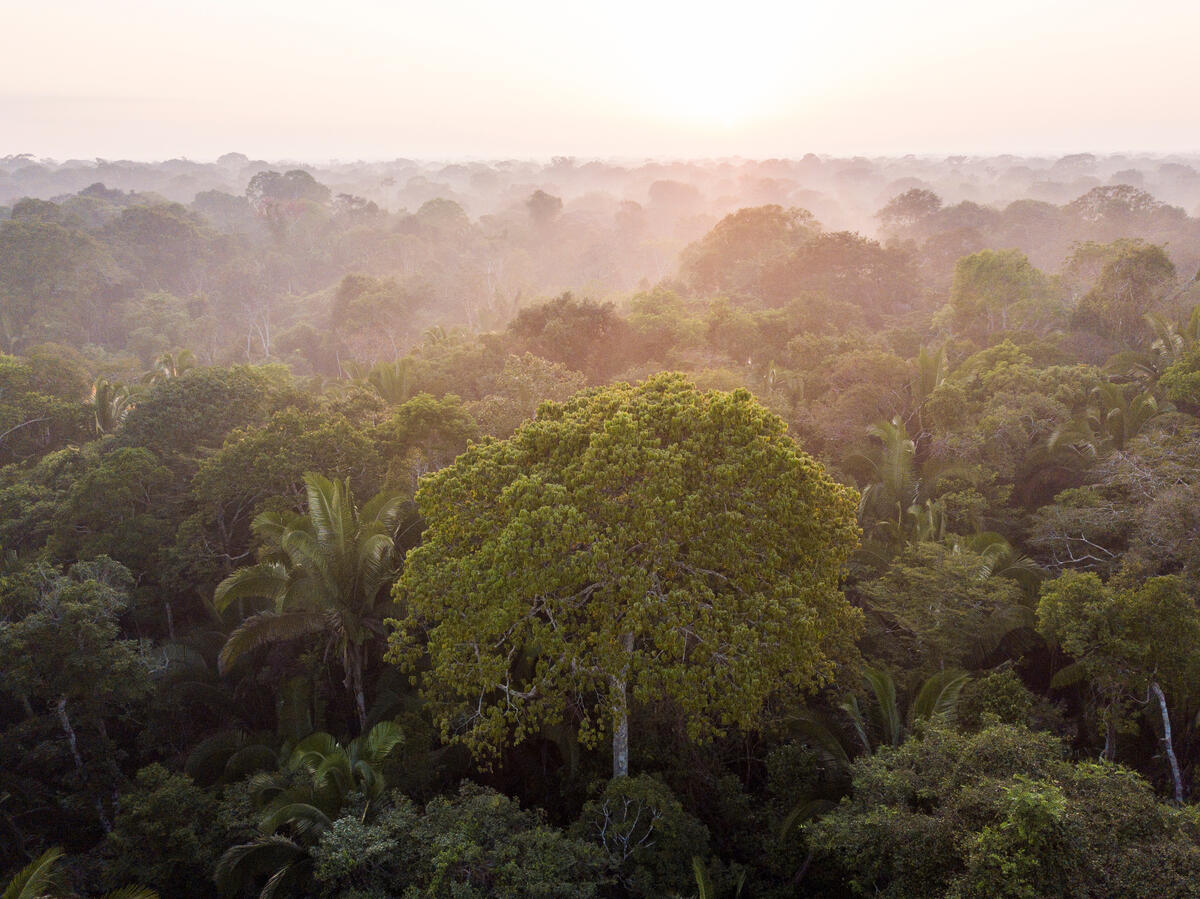Oreo products found on Canadian supermarket shelves list palm oil as an ingredient, the cultivation of which in Indonesia is a major driver of orangutan habitat loss

One year-old male baby orangutan Jelapat plays on the tree at Borneo Orangutan Survival (BOS) Foundation in Nyaru Menteng, Central Kalimantan. Jelapat was confiscated from a resident on June 21, 2016 in South Barito, Central Kalimantan after the owner kept him since December 2015.
12 November 2018 (JAKARTA) — Palm oil suppliers to snack food giant Mondelez, the makers of Oreo cookies, have destroyed almost 25,000 hectares of orangutan habitat in Indonesia in just two years, reveals a new mapping analysis by Greenpeace International. [1]
Mondelez is one of the world’s largest buyers of palm oil, which it uses in many of its best-known products, including Oreo cookies. [2] A Greenpeace International investigation discovered that between 2015 and 2017 [3], 22 of the company’s palm oil suppliers cleared over 70,000 hectares of rainforest — an area bigger than the City of Chicago, where Mondelez is based. [4]
“It’s outrageous that despite promising to clean up its palm oil almost ten years ago, Mondelez is still trading with forest destroyers. Palm oil can be made without destroying forests, yet our investigation discovered that Mondelez suppliers are still trashing forests and wrecking orangutan habitat, pushing these beautiful and intelligent creatures to the brink of extinction. They’re literally dying for a cookie,” said Kiki Taufik, the global head of Greenpeace Southeast Asia’s Indonesia forests campaign.
Mondelez gets much of the dirty palm oil from Wilmar International, the biggest and dirtiest palm oil trader in the world. Greenpeace is calling on Mondelez to drop Wilmar as a supplier until it can prove its palm oil comes from growers that are not destroying rainforests or exploiting people.
“Mondelez CEO, Dirk Van de Put, promised to offer consumers ‘snacking made right’. But there is nothing right about palm oil that is produced by killing orangutans and fuelling climate change,” said Taufik.
Oreo products found on Canadian supermarket shelves list “modified palm oil” as an ingredient and, according to Mondelez, Canada is one of the cookie’s top markets. [5]
“Thousands of Canadians have already taken a stand to demand an end to deforestation by the palm oil industry. Oreo’s maker, Mondelez, needs to live up to the promises it made to people in Indonesia, here in Canada, and around the world. Forests are vital habitats as well as the lungs of our planet, from Indonesia’s rainforests to Canada’s boreal — we can’t keep losing them if we’re going to stop climate change,” said Reykia Fick, Forest Campaigner at Greenpeace Canada. [6]
Scientists have warned that deforestation for palm oil poses a serious threat to orangutans and other endangered species. Last year, a comprehensive meta-study concluded that the Bornean orangutans numbers had halved over the past 16 years. [7]
Last week, the UN’s Executive Secretary of the Secretariat of the Convention on Biological Diversity, Cristiana Pașca Palmer, warned that biodiversity loss was ‘a silent killer’ and as serious a threat as climate change.
Tropical deforestation produces more greenhouse gas emissions each year than the entire European Union; outranking every country except the USA and China. In October 2018, the Intergovernmental Panel on Climate Change called for an immediate end to deforestation to limit global temperature rises to 1.5°C.
–30–
Download the report
Available here
Photos
Available here
Map of orangutan habitat and forest loss
Available here
Notes
[1] Report: Dying for a cookie: how Mondelēz is feeding the climate and extinction crisis.
[2] In 2017, Mondelez used 306,554 tonnes of palm oil and derivatives, and in 2016, Mondelez used 312,266 tonnes of palm oil. Based on analysis of ingredients lists. Manufacturing variations mean that palm, canola, or soybean oil may be being used in different regions or factories.
[3] Greenpeace International analysed deforestation by 25 palm oil producer groups and cross-referenced these groups with supply chain information published by Mondelez and other brands. Due to the nature of the palm oil trade (and action by the company), some of these producers may not currently be supplying Mondelez with palm oil, although they were all suppliers between 2015 and 2017, when the forest destruction took place. Mondelez first pledged to clean up its supply chains in 2010, and published a ‘no deforestation, no peat, no exploitation’ policy in 2014. Palm oil suppliers to Mondelez have also been accused of child labour, exploitation of workers, illegal deforestation, forest fires and land grabbing.
[4] Between 2015 and 2017, the 22 palm oil suppliers destroyed 70,770 hectares of rainforest in Indonesia, and neighbouring countries in Southeast Asia. Mondelez is based in Deerfield, Illinois, a suburb of Chicago. The city of Chicago is 60,600 hectares.
[5] See this 2017 Oreo Factsheet. It is unclear whether the palm oil used for Oreo production in Canada is sourced from suppliers responsible for deforestation.
[6] More than 10,000 people have signed Canada’s petition and more than half a million have signed globally to tell big companies to stop using palm oil from rainforest destroyers.
[7] Recent studies also show that both the Sumatran and newly discovered Tapanuli orangutan lost more than half their habitat between 1985 and 2007. All three species are classified as Critically Endangered, along with the Sumatran Tiger and Sumatran Rhino.
Contacts
Greenpeace International Press Desk, +31 (0)20 718 2470 (available 24 hours), [email protected].
Sol Gosetti, International Communications Coordinator, Indonesia Forest campaign, Greenpeace Southeast Asia [email protected], +44 (0) 7380845754.
Jesse Firempong, Communications Officer, Greenpeace Canada, [email protected], +1-778-996-6549.





Discussion
Thank you for the article on palm oil. Constructive suggestion: end with specific recommendations so we can buy smarter. Hugh